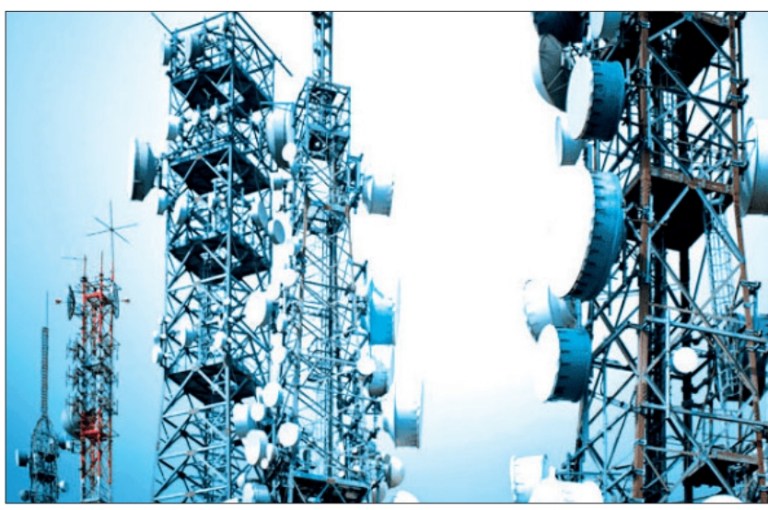Telecoms sector witnessed some developments in the past year due to criticism of government’s policies and service providers, though the challenges bedevilling the industry persisted, Abolaji Adebayo writes
Nigeria’s telecommunications sector remains a critical driver of economic growth, innovation, and social development. With over 225 million people, the country is one of Africa’s largest telecom markets, offering immense potential for investors, technology providers, and consumers.
The sector in 2024 stood at a crossroads of opportunity and challenge. With a robust regulatory framework, commitment to infrastructural development, and a focus on technological innovation, the sector has the potential to drive significant economic growth and improve the quality of life for millions of Nigerians.
In 2024, this sector continued to evolve, impacted by technological advancements, regulatory changes, and shifting consumer behaviours.
Despite notable progress in expanding access and services, challenges persist, impacting the sector’s ability to achieve its full potential. The overview of the telecom industry’s progress and hurdles in 2024.
Progress
One of the progresses recorded in the sector was an increased Broadband Penetration.
The Nigerian Communications Commission (NCC) continued to push for increased broadband penetration under the National Broadband Plan (2021–2025).
As of 2024, broadband coverage had reached 60 per cent, driven by investments in 4G and the gradual rollout of 5G networks. Improved internet access enhanced e-commerce, education, and financial inclusion, particularly in underserved rural areas.
Network expansion
As of 2024, the Nigerian telecom sector boasted a subscriber base exceeding 200 million, making it one of the largest in Africa.
The entry of new players and the expansion of existing networks have contributed to this growth. Major telecommunications companies like MTN Nigeria, Airtel Nigeria, Glo, and 9mobile continued to compete fiercely, driving innovation in service delivery and customer experience.
The introduction of 4G and 5G networks revolutionised the telecommunications landscape.
The deployment of 5G technology is still in its early stages in Nigeria, but it promises to enhance mobile broadband speeds, support Internet of Things (IoT) applications, and enable smart city initiatives, all of which are crucial for the country’s digital transformation.
Following the initial launch of 5G in 2022, network providers like MTN, Airtel, and Globacom have expanded coverage to more cities in 2024.
With speeds up to 100 times faster than 4G, 5G enables innovations in telemedicine, smart cities, and the Internet of Things (IoT). This expansion aligns with Nigeria’s goal to become a digital economy powerhouse.
The telecoms industry played a pivotal role in advancing financial inclusion through mobile money services. Platforms such as MTN’s MoMo, Airtel’s SmartCash and 9mobile’s 9PSB have expanded their user bases, providing millions with access to financial services like payments, savings, and microloans.
Regulatory framework
The Nigerian Communications Commission (NCC) played a pivotal role in regulating the telecommunications industry. In 2024, the NCC continued to focus on improving infrastructure, promoting competition, and ensuring consumer protection.
Recent regulatory changes sought to streamline the licensing processes and encourage investments in rural areas, addressing the urban-rural divide in telecom services.
The NCC introduced new policies in 2024 to address issues like data privacy, cybersecurity, and spectrum management. These policies aimed to foster a competitive, secure, and investor-friendly environment.
However, the sector still faced challenges such as frequent policy shifts, which led to uncertainty for investors. The NCC was tasked with maintaining a balance between fostering a competitive market and ensuring that new entrants do not compromise service quality.
Startups
Apart from that, tech startups continued to leverage telecom infrastructure to innovate in areas like health, education, and agri
culture. The rise of digital platforms has contributed to job creation and economic diversification, underscoring the telecom sector’s role as an enabler of progress.
The adoption of emerging technologies such as artificial intelligence (AI), machine learning, and blockchain is gaining traction in the Nigerian telecom sector.
Telecom companies are leveraging AI for customer service automation, network optimisation, and predictive maintenance. Additionally, blockchain technology held promise for secure transactions and improved data management.
Challenges
Despite the positive trajectory, the Nigeria’s telecom sector faced several challenges. While urban areas witnessed rapid advancements, rural regions still struggled with inadequate infrastructure, limiting access to quality telecom services.
Nigeria’s telecom infrastructure remained insufficient to meet the growing demand for connectivity. Navigating the regulatory landscape were challenging for both established players and new entrants.
Persistent power supply challenges affected the operational efficiency of telecom networks. Also, high costs of deploying fiber optic cables, and vandalism of existing infrastructure hindered network expansion.
Rising inflation, volatile exchange rates, and the removal of fuel subsidies in 2024 escalated operational costs for telecom companies.
These costs often translated into higher prices for consumers, limiting affordability. Due to the current economic situation, the telecoms operators continued to clamour for an increase in tariffs, threatening to shut down their services if the NCC refused to approve tariff review for them.
This agitation met rock from the subscribers who insisted that there should be no increase in tariff. The criticism and counter criticism rocked 2024 sliding to the new year 2025.
Cybersecurity
Cybersecurity remained a significant concern as digitization accelerates. Telecom providers were ramping up their efforts to secure networks and protect user data, ensuring compliance with global best practices for security and privacy.
As digital adoption increases, so do cybersecurity threats. Telecom operators faced growing challenges in safeguarding consumer data and preventing cyberattacks.
Strengthening cybersecurity frameworks remained a priority in 2024. Although broadband penetration improved, many rural areas still lacked reliable internet access.
This digital divide exacerbated inequalities in education, healthcare, and economic opportunities.
Policy, regulatory uncertainty
While the regulatory environment has improved, occasional policy inconsistencies and bureaucratic hurdles still posed challenges for investors and operators. In the previous year, the sector did not attracted as many investors as expected.
Tax policy especially hindered many investments that would have come into the country.
Way forward
To overcome these challenges and sustain progress, experts said Nigeria’s telecoms industry must focus on infrastructure Investment, policy stability, digital literacy, strengthening cybersecurity, and renewable energy adoption Public-private partnerships can accelerate infrastructure deployment, particularly in underserved areas.
The government should ensure consistent and transparent policies to attract foreign and local investments. Promoting digital skills among the population will maximise the benefits of telecom services.
Enhanced regulations and collaborations with global cybersecurity firms can mitigate risks, while leveraging solar and other renewable energy sources can address the power challenges affecting telecom infrastructure.
Looking ahead, the Nigerian telecommunications sector is poised for continued growth and transformation. The expansion of 5G networks is expected to unlock new opportunities in various sectors, including healthcare, education, and agriculture.
Additionally, increased collaboration between telecoms companies and technology firms could lead to innovative solutions that enhance connectivity and service delivery.
Furthermore, the rise of fintech services, driven by telecom operators, is likely to continue as digital financial inclusion becomes a priority for the Nigerian government and the Central Bank of Nigeria. As mobile payment solutions gain popularity, telecom providers are wellpositioned to capitalise on this trend.
Nigeria’s telecom sector has made significant strides in 2024, driving economic growth and digital transformation.
However, addressing the persistent challenges will require concerted efforts from the government, industry stakeholders, and consumers.
With the right strategies, Nigeria can cement its position as a leader in Africa’s digital economy, ensuring that telecom services empower every citizen.








